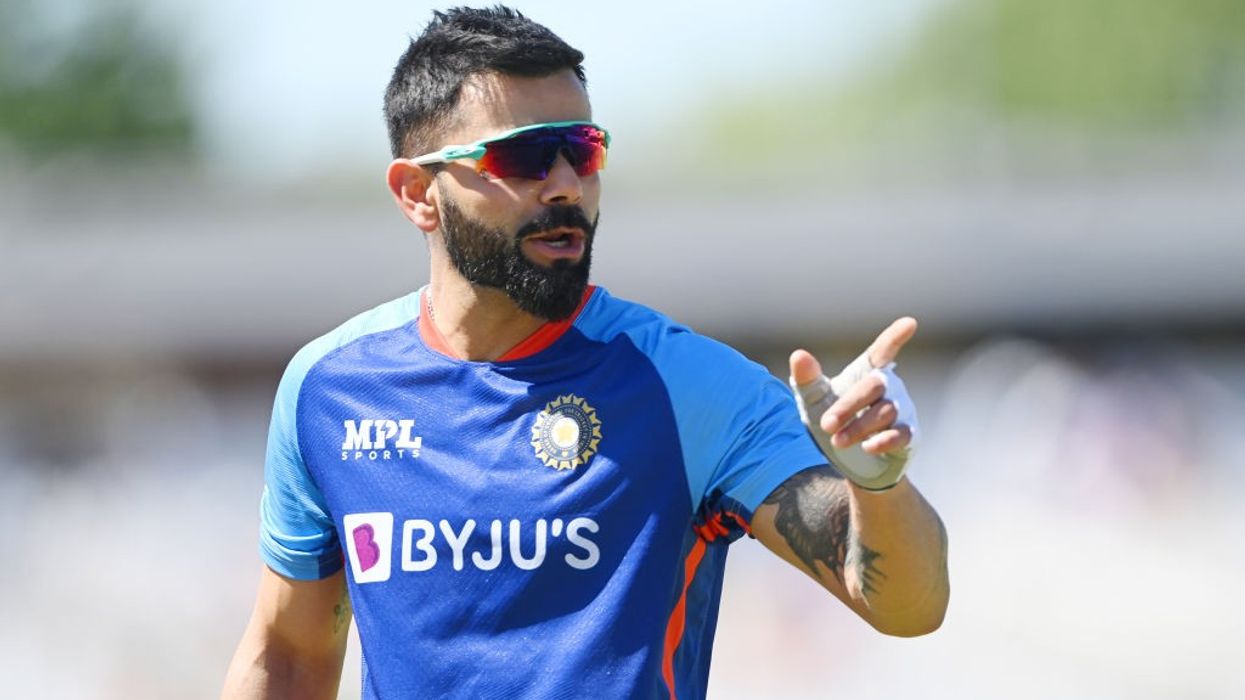Following the continuation of Virat Kohli's disappointing run of form in the final T20I against England, Indian skipper Rohit Sharma expressed disagreements with former skipper Kapil Dev's comments about the star batter's place in the team, saying that he is watching the game from the outside and does not know what is happening inside.
Virat Kohli's disappointing run of form continued in the T20I series against England, as he could manage only 12 runs in his two innings. "He is watching the game from outside and does not know what is happening inside. We have our thought process. We build our team and behind this, there is a lot of thinking. We back the boys and give them opportunities.
So, these things you do not get to know from outside. So, whatever is happening outside is not important but what is happening inside is more important for us," said the skipper during a post-match press conference referring to Kapil Dev's statement on Kohli.
"If you talk about form then everyone goes through ups and downs. The Player's quality does not get affected. So, we should keep these things in our minds. When a player is doing well for so many years, then one or two bad series does not make him a bad player. We should not overlook his past performances. We who are in the team know the importance of the player. They have got all the right to talk about it but it does not matter for us too much," he added.
Earlier Kapil Dev had said that if a bowler of spinner Ravichandran Ashwin calibre could be left out of the Test side, so could Virat Kohli. Ashwin did not feature in a single match in the recently concluded five-match Test series against England.
"If world No. 2 Test bowler Ashwin can be dropped from Test side then your No. 1 batter can also be dropped," Kapil stated.
"If he (Virat) is not performing, you cannot continue to keep these boys (youngsters like Deepak Hooda) out. I hope there is a healthy fight for selection, the youngsters should look to outperform Kohli. But Kohli needs to think, 'Yes at one point I was a big player, but I need to play like that No. 1 player again'. That is a problem for the team, it is not a bad problem," Kapil Dev added.
On Suryakumar Yadav's explosive 117 in the final T20I, the skipper Rohit termed it as one of the best T20I innings he had ever seen.
"When you are chasing a big total, come out and bat like he did, it shows the quality of the batter. We were three down and wanted that partnership to go as long as possible. He pretty much did everything right today. Disappointed that he was not there till the end, but it takes nothing away from his knock. You do not get to see that too often. We will take that with both hands as a team. He has shots all over the ground, it is a very rare quality that a batter can have. It is a good sign for us to have a player like that in the squad," he added.
(ANI)












